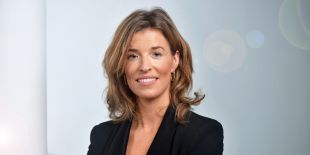The sustainable production of healthy and affordable food is one of the greatest challenges of our society. The world’s population is growing and climate objectives call for drastic changes. Our view on ingredients needs to change to conquer these challenges. Vivera, based in Holten, specializes in ‘new meat’; products that look and taste like meat but are made with vegetable protein.
Forty to fifty percent of Dutch people eat ‘new meat’ sometimes. A third of those products are made by Vivera from Holten. The corona pandemic did the company a lot of good: it has reinforced the need for short(er) food chains and more transparency, and it has brought a new perspective on health and welfare.

Willem van Weede, CEO Vivera Foodgroup
Willem van Weede, CEO of Vivera Foodgroup: “Corona strengthened the undercurrents that were already there. People are more concerned about their health and pay more attention to what they eat. Many are worried about the future of the world. Animal welfare also receives more attention. What we eat determines how healthy we are, how we treat other creatures and how responsible our food chain is. The clearest example: livestock farming is responsible for 24% of CO2 emissions. Imagine what a difference eating less meat would make.”
From meat to vegetable protein
Vivera is the third European player when it comes to developing and producing meat substitutes. “We started thirty years ago, as a part of Enkco. We developed more and more meat substitutes through the years and, a few years ago, we decided to transfer the meat division to another company so that we could focus purely on ‘vegetable meat’. We are active in 27 European countries and we will soon be operating under the flag of JBS from Brazil, the second-largest food producer in the world”, says van Weede. The protein at the base of Vivera’s products comes from soy, wheat, peas and chickpeas, among other things.
“We developed the first vegetable steak”
Willem van Weede
East Netherlands
It is no coincidence that a company like Vivera is located in Holten. East Netherlands has a strong and broad primary sector. Agrotechnological and food technological companies, as well as knowledge institutions, can come up with integrated solutions for sustainable food production. “We have more producers of vegetable products than average here, in the east”, says Van Weede. “And that makes sense because we used to have a lot of meat companies here. There are many fields; there is plenty of space for keeping animals. Some companies that used to produce meat are now switching to vegetable products. It is nice for a company like ours to be here. We share suppliers with other companies in the region, for example.
Protein transition
East Netherlands is a leader when it comes to the protein transition, with Vivera as a global player. The company has been developing numerous recipes for decades, and more than a hundred different products are being produced at Vivera’s production sites now. “We make ‘fish’ and ‘chicken pieces’ among other things, but without animal products. We are continuously developing new tastes and textures by using different techniques, technologies and ingredients.” It is the cooking process of a great chef, enlarged to an industrial scale. “Our company is incredibly innovative, thanks to the matrix of combinations we make between technology and ingredients. We produced the first steak made from vegetable protein, which caused quite a stir. We also invested in technology for ‘new sausages’ last year.

Francine Hellinga, food project manager at Oost NL
Expansion
Vivera needs to expand, partly due to the market’s great demand. Francine Hellinga, food project manager at Oost NL, helps the company with the nitrogen issues that arise. “Vivera is extremely positive for our environment, of course, because meat substitutes reduce the emissions of methane gas and CO2. It does have to deal with nitrogen regulations, however, just like any other company that wants to expand or build. The building and the business activities need to fit within the legal framework. We work in close cooperation with the various partners, think along with the company, hook them up with the right experts and bring stakeholders together to speed up the process.”
“Oost NL also helps us determine which permits are needed”, says Van Weede. “The province of Overijssel has made it possible for companies to offset nitrogen. Oost NL knew about this development early on and they helped us look ahead. Oost NL can also facilitate contacts with the province on our behalf.”
“We attract innovative companies to East Netherlands”
Francine Hellinga
Talent
Hellinga is also Vivera’s contact for new talent. Van Weede: “We are always looking for technical personnel. The availability of talent is as important as ever. We discussed this with Oost NL. Think of specialists in the fields of research and development, and office staff. Oost NL connects us to other companies, organizations and knowledge and educational institutes that can think along and help bind talent to Vivera.”
“Oost NL attracts innovative companies to the region and helps them expand”, says Hellinga. “The availability of suitable personnel is essential for this. Oost NL thinks along when it comes to this. I am part of a national consultation on binding and finding talent, and mapping and identifying shortages. We are well informed about all initiatives. We have great connections with various ‘talent organizations’. Think of recruitment agencies and the UWV, but also of schools and universities like Landstede and Wageningen University & Research. We bring parties together. We help companies like Vivera, which contribute to solving social issues, to accelerate their breakthrough to a new phase of growth and development.”




